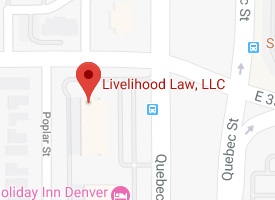
Complaints concerning racial discrimination in the workplace are the most commonly filed complaints in the United States. But that’s not the case in Colorado. While it falls in the middle of states for racial discrimination complaints, this state leads the nation in employment discrimination complaints based on religion. Because religious discrimination at work is such a hot button issue here, let’s take a look at what employees need to know to protect their rights.
Laws Against Religion-Based Employment Discrimination
Both Title VII and the Colorado Anti-Discrimination Act (“CADA”) prohibit employers from discriminating against employees based on their religion, or lack thereof. Together these statutes stop Colorado employers from basing employment decisions such as hiring, firing, pay, and any other term or condition of employment on a worker’s religious beliefs. These laws also prohibit employers from segregating workers based on faith and require that they reasonably accommodate an employee’s spiritual practices.
Common Types of Religious Discrimination
Some common types of religion-based discriminatory practices in the workplace include:
- Denying an employee’s reasonable request for a faith-based accommodation, if the accommodation imposes no more than a minor impact on business operations;
- Retaliating against an employee who has filed a claim or participated in an investigation involving religious discrimination; and
- Harassing an employee because of their faith, practices, or because of the beliefs or spiritual practices of the people they associate with.
There are two types of religious harassment –– quid pro quo and hostile work environment. Quid pro quo harassment occurs when an employer requires that an employee abandon or alter a religious belief as a condition of employment. Employers create a hostile work environment when they subject an employee to faith-based comments or actions, from other workers or non-workers, that are so severe and pervasive that the employee reasonably perceives their work environment as abusive.
What Qualifies As Religion Under The Law?
Colorado courts interpret the term “religion” to include all aspects of religious observances, practices, and beliefs as well as moral or ethical beliefs as to what is right and wrong that any employee sincerely holds. Accordingly, CADA covers all major religions such as Christianity, Islam, and Judaism, along with any obscure faiths and those that consider themselves to be atheists.
What Employers Do The Laws Apply To?
Title VII applies to all employers with 15 or more employees. In contrast, CADA applies to all employers regardless of size. As an exception to the overarching anti-discrimination rules, CADA does not apply to religious organizations or associations, and lets religious organizations give hiring preference to members of their faith for roles that include performing religious activities. Additionally, the law generally prohibits clergy members from bringing religious discrimination claims.
What Is A Reasonable, Religious Accommodation?
Colorado employers must provide reasonable accommodations for their employee’s religious practices and observances unless doing so would result in an undue hardship. A reasonable accommodation is any adjustment to the work environment that allows an employee to practice their religion. Some common types of accommodations include:
- Flexible shifts, schedules, or break times to accommodate religious observances and prayer;
- Additional time off, with or without pay, for spiritual practice;
- Modifications or exceptions to the workplace dress or grooming policy to allow for religious garments, head coverings, hairstyles, facial hair, or body hair; and
- The use of work facilities for religious observances and prayer.
What To Do If You Experience Religious Discrimination At Your Job?
If you are facing discrimination at work because of your faith, the time to act is now. Report each incident of discrimination to your employer and document every event for your records as well.
It’s also essential that you consult with an experienced anti-discrimination attorney like the lawyers at Livelihood Law as soon as possible. An experienced lawyer will help you fight back and get the results you deserve.


